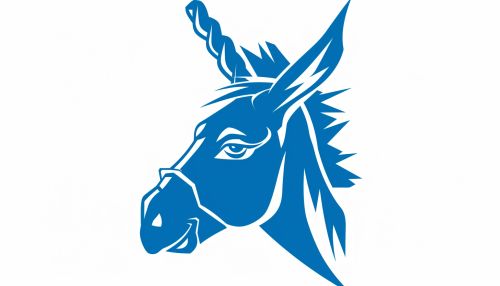Democratic Party
History
The Democratic Party is one of the two major contemporary political parties in the United States, alongside the Republican Party. Founded in 1828 by supporters of Andrew Jackson, it is the world's oldest active political party. The party's platform has transformed over time, initially advocating for states' rights and agrarian interests, but evolving in the 20th century to support civil rights, social justice, and progressive reforms.
Early Years
The Democratic Party traces its origins to the Democratic-Republican Party, founded by Thomas Jefferson and James Madison in the early 1790s. The Democratic-Republican Party was established in opposition to the Federalist Party, which advocated for a strong central government. The Democratic-Republicans favored a decentralized government and were supported by agrarian interests, particularly in the southern states.
In 1824, the Democratic-Republican Party split into factions, leading to the formation of the Democratic Party. Andrew Jackson emerged as the leader of the new party, which championed the "common man" and opposed the elitist policies of the National Republican Party and later the Whig Party. Jackson's presidency (1829-1837) marked the beginning of the Democratic Party's dominance in American politics, a period known as the "Jacksonian Democracy."
Civil War and Reconstruction
The issue of slavery deeply divided the Democratic Party in the 19th century. Northern Democrats generally opposed the expansion of slavery into new territories, while Southern Democrats supported it. This division culminated in the secession of Southern states and the Civil War (1861-1865). During the war, the Democratic Party was split between the "War Democrats," who supported the Union, and the "Peace Democrats," who called for an immediate end to the conflict.
After the Civil War, the Democratic Party was largely associated with the South and opposed the Reconstruction policies of the Republican Party, which aimed to extend civil rights to formerly enslaved people. The Democrats regained national prominence in the late 19th century by advocating for states' rights and opposing high tariffs.
20th Century Transformation
The early 20th century saw significant changes in the Democratic Party's platform. Under the leadership of Woodrow Wilson, the party began to embrace progressive reforms, including antitrust legislation, labor rights, and women's suffrage. The New Deal era, under President Franklin D. Roosevelt, marked a major shift towards social welfare programs and government intervention in the economy. The New Deal coalition, which included labor unions, urban voters, and African Americans, helped the Democrats dominate national politics for several decades.
The Democratic Party's support for civil rights further evolved in the mid-20th century. President Harry S. Truman desegregated the armed forces, and the party increasingly supported civil rights legislation. This shift culminated in the passage of the Civil Rights Act of 1964 and the Voting Rights Act of 1965 under President Lyndon B. Johnson. These policies led to a realignment of party support, with many Southern whites shifting to the Republican Party.
Modern Era
In recent decades, the Democratic Party has continued to advocate for social justice, environmental protection, and economic equality. The party's platform includes support for universal healthcare, LGBTQ+ rights, and immigration reform. Notable Democratic presidents in the modern era include Bill Clinton, who presided over a period of economic prosperity in the 1990s, and Barack Obama, the first African American president, who enacted the Affordable Care Act.


Ideology and Policies
The Democratic Party's ideology is generally characterized as center-left on the American political spectrum. The party advocates for a mixed economy, combining free-market principles with government intervention to address social inequalities and provide public goods.
Economic Policies
The Democratic Party supports progressive taxation, with higher tax rates for wealthier individuals and corporations. This approach aims to reduce income inequality and fund social programs. The party also advocates for a higher minimum wage, stronger labor protections, and policies that promote job creation and economic growth.
The Democrats have historically supported social welfare programs, such as Social Security, Medicare, and Medicaid. These programs provide financial assistance and healthcare to the elderly, disabled, and low-income individuals. The party also supports expanding access to affordable healthcare through measures like the Affordable Care Act.
Social Policies
The Democratic Party is known for its progressive stance on social issues. The party supports LGBTQ+ rights, including marriage equality and protections against discrimination. Democrats also advocate for women's rights, including access to reproductive healthcare and equal pay for equal work.
The party has a strong commitment to civil rights and racial equality. Democrats support policies aimed at addressing systemic racism and promoting diversity and inclusion. This includes criminal justice reform, voting rights protections, and efforts to reduce racial disparities in education, healthcare, and employment.
Environmental Policies
The Democratic Party prioritizes environmental protection and climate change mitigation. The party supports the Paris Agreement and advocates for policies to reduce greenhouse gas emissions, promote renewable energy, and protect natural resources. Democrats also support regulations to reduce pollution and protect public health.
Foreign Policy
The Democratic Party's foreign policy is generally characterized by a commitment to multilateralism and international cooperation. The party supports alliances such as NATO and international organizations like the United Nations. Democrats advocate for diplomacy and development aid as tools for promoting global stability and human rights.
The party also supports a strong national defense but emphasizes the importance of avoiding unnecessary military interventions. Democrats advocate for arms control and non-proliferation efforts to reduce the threat of nuclear weapons.
Organizational Structure
The Democratic Party is organized at the national, state, and local levels. The Democratic National Committee (DNC) is the party's central governing body, responsible for coordinating party activities and promoting Democratic candidates. The DNC is chaired by an elected official who oversees party operations and strategy.
National Level
At the national level, the Democratic Party holds a Democratic National Convention every four years to nominate its candidates for president and vice president. The convention also adopts the party platform, which outlines the party's policy positions and priorities. Delegates to the convention are selected through a combination of primary elections and caucuses held in each state.
The DNC works to support Democratic candidates in federal, state, and local elections. This includes fundraising, organizing voter outreach efforts, and providing resources and training for candidates and campaign staff.
State and Local Levels
Each state has its own Democratic Party organization, which operates independently but in coordination with the national party. State parties are responsible for organizing primary elections and caucuses, supporting state and local candidates, and promoting the party's platform at the state level.
Local Democratic Party organizations operate at the county, city, and precinct levels. These organizations engage in grassroots organizing, voter registration, and community outreach. They also play a key role in mobilizing voters and supporting Democratic candidates in local elections.
Key Figures and Factions
The Democratic Party has a diverse membership, with various factions representing different ideological perspectives. Key figures in the party include elected officials, party leaders, and influential activists.
Progressive Wing
The progressive wing of the Democratic Party advocates for bold, transformative policies to address social and economic inequalities. Prominent figures in this faction include Bernie Sanders and Alexandria Ocasio-Cortez. Progressives support policies such as Medicare for All, the Green New Deal, and tuition-free public college.
Centrist Wing
The centrist wing, also known as moderates, advocates for pragmatic, incremental reforms. This faction includes figures like Joe Biden and Nancy Pelosi. Centrists support policies that balance progressive goals with political feasibility, such as expanding access to healthcare through a public option and implementing climate change measures that promote economic growth.
Establishment Wing
The establishment wing consists of long-standing party members and leaders who prioritize party unity and electoral success. This faction includes figures like Hillary Clinton and Chuck Schumer. The establishment wing often focuses on maintaining the party's broad coalition and winning elections at all levels of government.
Electoral Performance
The Democratic Party has a long history of electoral success at the federal, state, and local levels. The party has produced 16 presidents, including notable figures such as Franklin D. Roosevelt, John F. Kennedy, and Barack Obama.
Presidential Elections
The Democratic Party has won the presidency in several landmark elections. Franklin D. Roosevelt's four-term presidency (1933-1945) saw the implementation of the New Deal and significant social and economic reforms. John F. Kennedy's election in 1960 marked a new era of youthful leadership and progressive policies.
Barack Obama's election in 2008 was historic, as he became the first African American president. His administration focused on healthcare reform, economic recovery, and social justice initiatives.
Congressional Elections
The Democratic Party has also had significant success in congressional elections. The party has controlled both the House of Representatives and the Senate at various times throughout its history. Democratic majorities in Congress have been instrumental in passing landmark legislation, such as the Civil Rights Act, the Voting Rights Act, and the Affordable Care Act.
State and Local Elections
At the state and local levels, the Democratic Party has a strong presence in many regions of the country. The party controls a significant number of governorships, state legislatures, and local offices. Democratic state and local officials play a crucial role in implementing the party's policies and addressing issues specific to their communities.
Criticisms and Controversies
The Democratic Party, like any major political organization, has faced criticisms and controversies throughout its history. These issues have often centered on internal divisions, policy disagreements, and ethical concerns.
Internal Divisions
The Democratic Party's diverse membership has led to internal divisions and factionalism. Disagreements between progressives and centrists have sometimes resulted in public disputes and challenges in achieving party unity. These divisions were particularly evident during the 2016 and 2020 presidential primaries.
Policy Disagreements
The Democratic Party has faced criticism for its policy positions from both the left and the right. Progressives have argued that the party's policies do not go far enough in addressing social and economic inequalities, while conservatives have criticized the party for advocating for what they see as excessive government intervention and spending.
Ethical Concerns
The Democratic Party has also faced ethical concerns and scandals involving its members. High-profile controversies, such as the Watergate scandal and the Clinton-Lewinsky scandal, have impacted the party's reputation and electoral prospects. The party has taken steps to address these issues through internal reforms and accountability measures.
